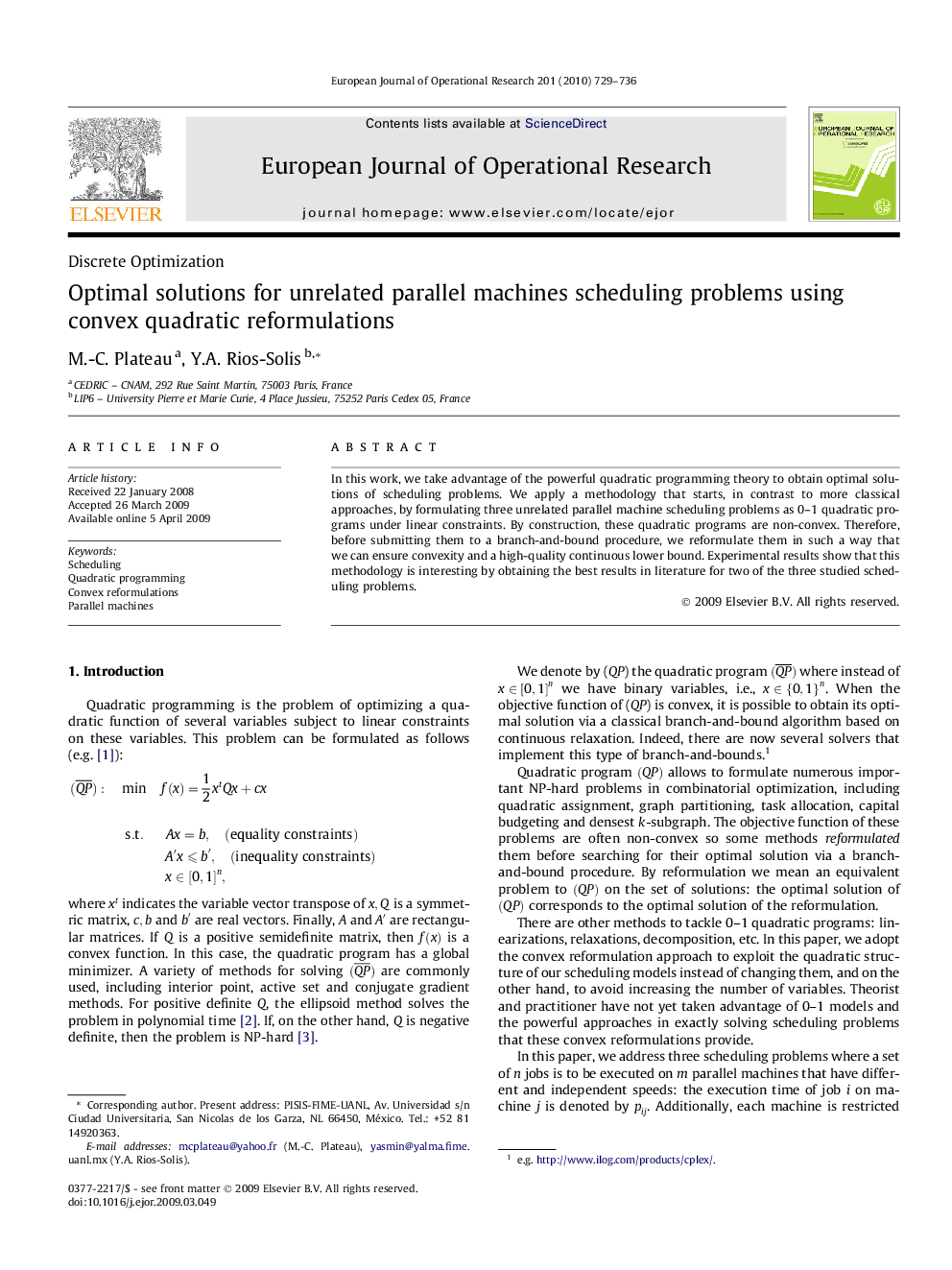| Article ID | Journal | Published Year | Pages | File Type |
|---|---|---|---|---|
| 478708 | European Journal of Operational Research | 2010 | 8 Pages |
Abstract
In this work, we take advantage of the powerful quadratic programming theory to obtain optimal solutions of scheduling problems. We apply a methodology that starts, in contrast to more classical approaches, by formulating three unrelated parallel machine scheduling problems as 0–1 quadratic programs under linear constraints. By construction, these quadratic programs are non-convex. Therefore, before submitting them to a branch-and-bound procedure, we reformulate them in such a way that we can ensure convexity and a high-quality continuous lower bound. Experimental results show that this methodology is interesting by obtaining the best results in literature for two of the three studied scheduling problems.
Related Topics
Physical Sciences and Engineering
Computer Science
Computer Science (General)
Authors
M.-C. Plateau, Y.A. Rios-Solis,
